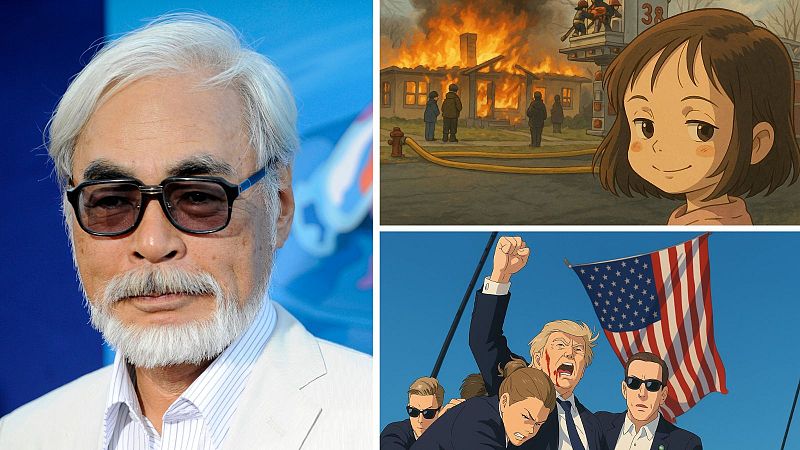
You may have noticed this week that everything from historic photos, classic film scenes, internet memes and recent political moments have been reimagined online as Studio Ghibli-style portraits.
The trend quickly went viral, all thanks to ChatGPT and the OpenAI chatbot’s latest update, which launched on Tuesday (25 March).
The latest addition to the GPT-4o has meant users can replicate the distinct artistic style of animation studio co-creator and legendary Japanese filmmaker Hayao Miyazaki (My Neighbor Totoro, Spirited Away).
"Today is a great internet day," one user declared as he shared popular memes in the Ghibli format.
That’s all well and good, but the trend has also highlighted ethical concerns about artificial intelligence tools trained on copyrighted creative works and what that means for the livelihoods of human artists.
Not that that’s a concern for ChatGPT maker OpenAI, which has largely encouraged the “Ghiblification” experiments. Its CEO Sam Altman even changed his profile on social media platform X into a Ghibli-style portrait.
What started as another example of how OpenAI doesn’t care about the work of artists went straight to the White House, with Donald Trump’s administration exploitating the trend in the most insulting and tone-deaf of ways.
Indeed, Trump’s administration jumped onto the trend bandwagon, using the White House’s official X account to post a Ghibli-style image of a weeping woman from the Dominican Republic recently arrested by US immigration agents.
Sickening.
Miyazaki, 84, known for his hand-drawn approach and whimsical storytelling, has expressed skepticism about AI's role in animation. His previous comments on AI animation have resurfaced and also gone viral, with the animator saying he was “utterly disgusted” by an AI demo.
The video is from 2016. The person demonstrating the animation, which showed a writhing body dragging itself by its head, explained that AI could “present us grotesque movements that we humans can’t imagine.”
That prompted Miyazaki to tell a story.
“Every morning, not in recent days, I see my friend who has a disability,” Miyazaki said. “It’s so hard for him just to do a high five; his arm with stiff muscle can’t reach out to my hand. Now, thinking of him, I can’t watch this stuff and find it interesting. Whoever creates this stuff has no idea what pain is.”
He said he would “never wish to incorporate this technology into my work at all.”
“I strongly feel that this is an insult to life itself,” he added.
The clip ends with a voiceover from Miyazaki saying: “I feel like we are nearing the end of times. We humans are losing faith in ourselves.”
Check it out:
Josh Weigensberg, a partner at the law firm Pryor Cashman, said that one question the Ghibli-style AI art raises is whether the AI model was trained on Miyazaki or Studio Ghibli’s work. That in turn “raises the question of, ‘Well, do they have a license or permission to do that training or not?’” he said.
Weigensberg added that if a work was licensed for training, it might make sense for a company to permit this type of use. But if this type of use is happening without consent and compensation, he said, it could be “problematic.”
Again, “problematic” doesn’t phase Sam Altman.
Even if ChatGPT's increasingly popular new image generation tool has led to OpenAI putting in place "temporary" limits on how many are generated, Altman has stated that the unspecified cap “hopefully” won’t be in place for very long.
"It's super fun seeing people love images in ChatGPT, but our GPUs are melting," said Altman.
Let them melt. And thankfully, some X users are speaking out:
Studio Ghibli was founded in 1985 by directors Miyazaki and Isao Takahata. It has produced some of the most acclaimed animated films of all time, including My Neighbor Totoro (1988), Princess Mononoke (1997), Howl’s Moving Castle (2004), and Spirited Away (2004), which won the Academy Award for Best Animated Feature.
Their most recent film was 2023’s The Boy And The Heron - which won the Best Animated Feature Oscar last year.







